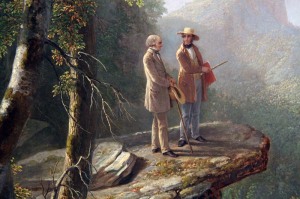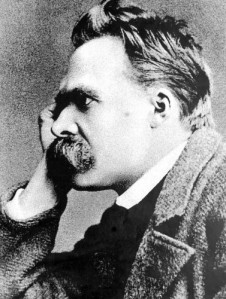Arthur Schopenhauer (1788-1860), a German philosopher, and a regular in past posts on Backyard Philosophy, stands out for a few reasons–not counting his love of puddles and his obstinant rain-or-shine walking schedule.
![[Image from Wikipedia]](https://backyardphilosophy01.files.wordpress.com/2014/07/250px-schopenhauer.jpg?w=640)
He was one of the first major modern thinkers to actively, even aggressively, take an atheistic stance. He was also one of the first to incorporate Eastern Philosophy into his thought, particularly the Hindu Upanishads and Buddhist discourses. He influenced Wagner, Freud, Nietzsche, and Albert Swietzer, among others, and remains a favored philosopher of musicians.
Schopenhauer also coined the word “pessimism,” using the Latinate pessimismus in 1835. This is his main claim to fame, exemplified by the oft-quoted advice, which he may have never said: eat a frog each morning, so that the rest of the day won’t be as bad.
Indeed, Schopenhauer may be one of the most “pessimistic” thinkers in Eastern and Western thought, earning him the dour sobriquet “The Great Pessimist.” And this, not his love of poodles (unfortunately) has stuck.
But despite this pessimism, or maybe because of it, Schopenhauer’s writing has a certain power. While many of his thoughts are “old” and remain warped by egotism, misogyny, and indignation–particularly his spiteful essay On Women–other pieces offer a unique, applicable insight for life, even in the present day.
Continue reading “Schopenhauer, a man for all seasons (especially bad ones)”







